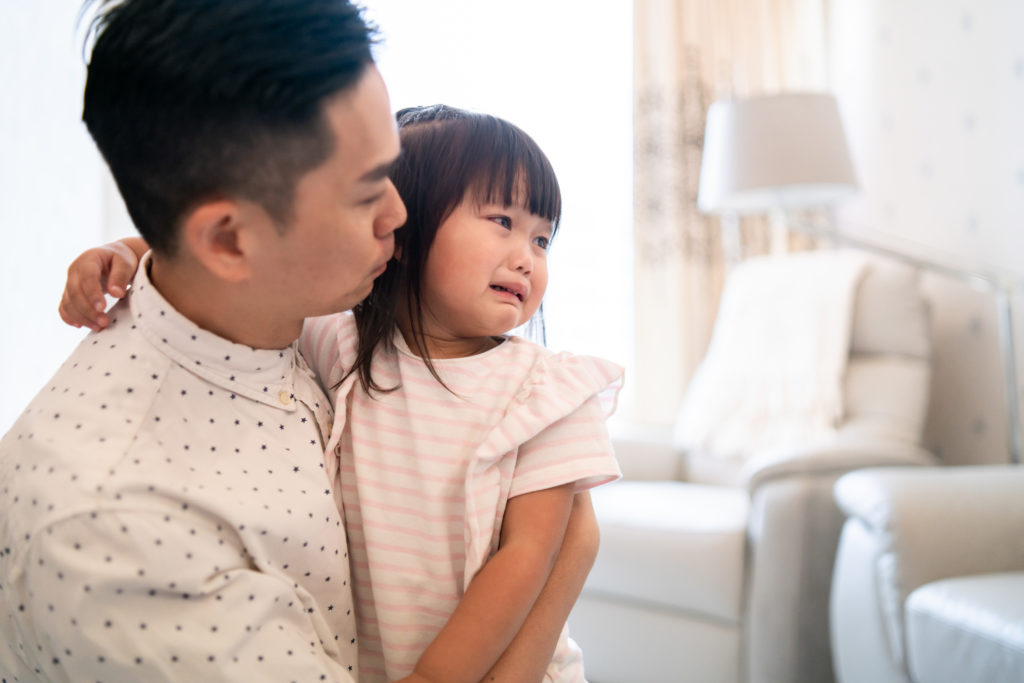Sponsored content brought to you by UT Health Austin
According to the United Nations Educational, Scientific and Cultural Organization (UNESCO), nearly 90% of school-aged children have been affected by school closures related to the COVID-19 pandemic. While your child’s school may have reopened since the beginning of the pandemic, it’s likely that significant changes in terms of social interaction and learning have taken place.

But changes to the learning environment aren’t the only adjustments children have had to make as a result of the pandemic. Adjusting to new schedules and routines, wearing a mask and social distancing and witnessing how parents and other family members have been affected by the virus are all examples of changes children may struggle with during this time.
So, how can you help your child maintain mental and emotional health despite changes due to COVID-19? Roshni Koli, M.D., board-certified child and adolescent psychiatrist, and Jeffrey Shahidullah, Ph.D., licensed pediatric psychologist, both practicing in UT Health Austin Pediatric Psychiatry at Dell Children’s, weighed in on how parents and children can make the best of this ongoing situation.
What behaviors indicate a child is not adjusting well to change?
“Behavioral changes typically depend on the developmental age of the child. Younger children tend to be more behaviorally expressive. So, you may notice an increase in irritability, or they may be exhibiting behaviors that are needy or clingy,” explains Dr. Shahidullah. “Older children and adolescents tend to internalize symptoms more, so you may also notice an increase in social withdrawal as well as irritability, frustration and anger, even over small matters.”
Symptoms that may suggest your child is not coping well:
- Withdrawal from activities that typically give them pleasure.
- Irritability or moodiness.
- Routinely expressing worries.
- Complaining more than usual.
- Crying.
- Displaying surprising fearful reactions.
- Clinging to a parent or teacher.
- A change in sleep patterns.
- A change in eating habits.
What can parents do to help their child manage stress better?
It’s never too early to help your child recognize certain emotions to better explain their feelings. Identifying a character’s feelings in movies is a great starting point for teaching children how to express their feelings.
Ways to help children adjust to change and reduce stress:
- Develop a daily routine.
- Have a separate and dedicated schooling environment for at-home learning.
- Break the day into chunks, such as morning, afternoon, evening, with goals for each part of the day.
- Keep lines of communication open, checking in and asking how your child is doing.
- Have one-on-one time with your child.
- Incorporatedailymindfulness activities.
- Incorporate daily physical activity.
- Encourage social interaction through video calls with loved ones, writing letters or small pod-like playdates where you can safely interact with friends.
When should parents seek professional help for their child?

“If you notice mood or anxiety changes accompanied by changes in appetite, sleep or energy levels for two or more weeks, something more serious may be going on, and reaching out to your child’s pediatrician or a mental health professional could be very beneficial. If you have any safety concerns for your child or if they have expressed thoughts of not wanting to be here, seek emergency care as quickly as possible,” explains Dr. Koli.
“We provide a lot of support to kids individually, but we also work with parents, too. There are many sustainable things that you can incorporate into your daily life that can help make things easier for everyone,” says Dr. Koli.
To make an appointment with UT Health Austin Pediatric Psychiatry at Dell Children’s, call 512.324.0029.

